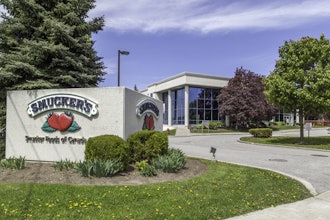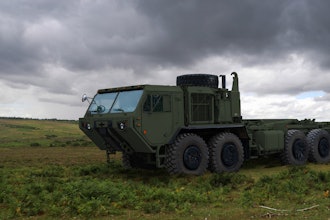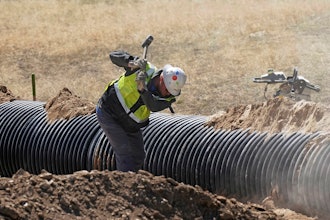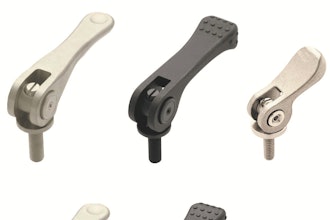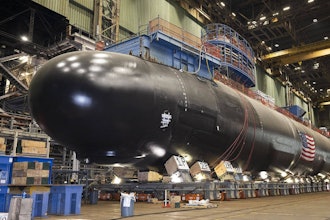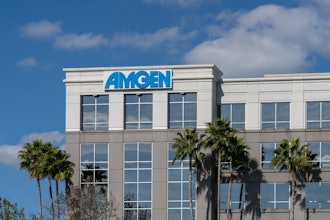
The past two years have not been kind to mid-sized manufacturers. Buffeted by the impact of COVID-19 lockdowns, growing labor scarcities, a broken supply chain, the highest inflation rate in 40 years, and rising insurance costs, the sector is struggling to manage these intricate risks.
These varied stressors are occurring at a time of remarkable digital transformation across the manufacturing industry, evident in the growing use of robotics and interconnected sensors, devices and applications in the Industrial Internet of Things (IIoT). In effect, the industry’s transformation is colliding with traditional loss exposures and new ones. The increase in risks for mid-sized manufacturers is especially challenging, as there may not be a clearly defined management role to address the current complexities.
While the property and casualty insurance industry offers resources to help manufacturers, an eye-opening 75 percent of mid-sized manufacturing executives whose role includes risk management say their needs “are not being met,” up from 62 percent the prior year, according to QBE’s second annual Mid-Sized Company Risk Report survey.
The onus is on the insurance industry to better understand the intricate problems confronting manufacturers and why these challenges are adversely affecting the opinions of executives with risk management responsibilities. In the survey, two key issues were raised—an absence in risk management advice customized to the unique circumstances of each manufacturer and a lack of holistic risk solutions.
This shortcoming often appears in our dealings with prospective customers – especially since the onset of COVID-19. We have seen a rise in the frequency of brokers coming to us with clients looking for a new insurance carrier due to last-minute changes in terms and conditions by the incumbent carrier. Often the complaint is that the current insurer made an insufficient effort to understand the client’s unique risk profile.
Other mid-sized manufacturing executives cited growing apprehension over regulatory compliance and business interruption risks. State regulations put forth in 2020, for example, require employers to document measures protecting workers exposed to COVID-19. Failure to comply with the rules can result in prohibitively costly OSHA violations.
Manufacturers are under duress from fragile supply chains, resulting in higher costs for materials and components, and pronounced labor shortages caused by the so-called Great Resignation. With year-over-year inflation rising 7.0 percent in December, the need for accurate property and equipment replacement cost valuations for insurance purpose has risen in complexity and importance.
Certainly, managing risk in the sector is not for the fainthearted. Help is sorely needed, as the survey findings suggest.
Help is On the Way
To better grasp their loss exposures during this period of complex economic, technological and meteorological change, mid-sized manufacturers need to work more closely with their brokers to find an insurance company that specializes in serving their sector. The optimal insurer should be a carrier that sees its relationship with the insured as a trusted partnership, in which both parties can benefit from improved risk identification, pragmatic loss prevention tactics, and more targeted and efficient post-loss services.
For example, in a trusted partnership, insurers can assist risk managers struggling with the industry’s revolving door of labor—a key factor in higher workplace injuries and illnesses. To help onboard new workers, an insurer that specializes in serving mid-sized manufacturers will have assembled a vast library of online training videos tailored to different job processes and customized to risk manager needs and concerns.
Some specialized insurers also may provide value-added services like AI-powered software to assess each job task from a musculoskeletal disorder (MSD) risk standpoint. An example is the Humantech industrial ergonomics software, in which a mobile phone video is taken of a worker performing a specific job task and then analyzed by AI .
Some specialized insurers can help compensate for the production slowdowns caused by supply chain stoppages. When complex manufacturing equipment is damaged, it has become increasingly difficult over the past two years to find replacement parts on a timely basis. Large insurers often have a global procurement network they can leverage on behalf of midsized manufacturers to source parts on an expedited basis.
To improve the company’s commercial insurance claims outcomes, specialized insurers can provide access to the carrier’s easy-to-use, AI-driven data and analytics tools. Using machine learning algorithms to analyze a database of worker's compensation claims, for example, insights are captured to reduce the frequency and severity of these costly claims.
To deliver the holistic risk management manufacturers desire, insurers must be proactive. For example, we reached out to a paper manufacturer that felt the incumbent carrier did not understand its risk profile.
An evaluation by our Risk Solutions team, which conducted in-person inspections of the company’s two manufacturing sites, suggested that its high-risk profile was due to two issues—a large volume of dust and problems with storing flammable products. The team advised more frequent cleaning to overcome the first problem and the addition of an automatic fire door to address the second problem.
The changes were made by the company, culminating in a property insurance policy aligned with its risk profile. As the relationship burgeoned, we provided quotes for their other lines of insurance and took on these risks, as well, simplifying its insurance program from two carriers to one.
That’s the value of a trusted relationship. At a time of such complicated loss exposures for mid-sized manufacturers, the insurance industry needs to reimagine the nature of the services we provide. With so much data at our disposal, we have an opportunity to do more than simply bear client risks. As the survey made plainly clear, our expertise and guidance are needed, too.









